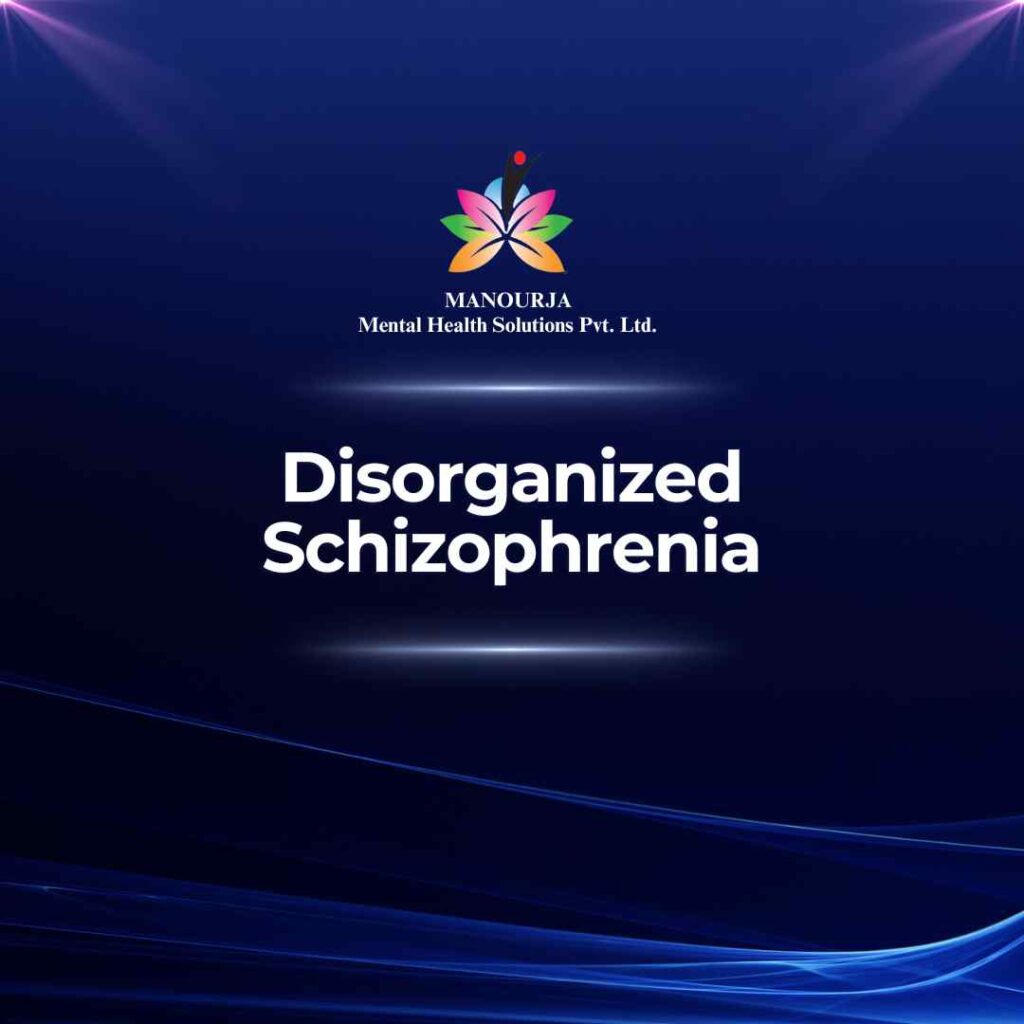Disorganized Schizophrenia

Disorganized schizophrenia, previously known as hebephrenic schizophrenia, was one of the subtypes of schizophrenia outlined in older diagnostic systems, characterized primarily by disorganization in thought, behavior, and speech. Although this specific subtype is no longer officially recognized in the DSM-5, the symptoms traditionally associated with it are still considered under the broader diagnosis of schizophrenia, particularly noted under the “disorganized behavior” category.
Key Symptoms:
- Disorganized Speech: Communication may be impaired, and speech patterns are often disjointed, making it difficult for others to understand. This includes frequent derailment or incoherence.
- Disorganized Behavior: This can manifest as difficulty performing daily activities and tasks, unpredictable or inappropriate emotional responses, and behaviors that are not focused on achieving a goal.
- Flat Affect: A significant reduction in the expression of emotions through facial expressions, voice tone, or gestures.
- Inappropriate Affect: Emotions expressed are often incongruent with the situation; for example, laughing inappropriately when discussing something serious.
- Lack of Motivation: Difficulty starting or sustaining any goal-directed activities, leading to poor hygiene, nutrition, and general care of oneself.
Forms
In the context of the older classifications, disorganized schizophrenia was distinguished from other subtypes mainly by the predominance of thought and behavior disorganization rather than by the presence of delusions and hallucinations (though these might still be present). In current clinical practice, these symptoms are considered as part of the broader schizophrenia spectrum disorder and are addressed as part of the overall diagnosis without separate subtype distinction.
Treatment of Disorganized Schizophrenia:
Treatment strategies for symptoms historically classified under disorganized schizophrenia involve a combination of medication, psychotherapy, and supportive care:
Antipsychotic Medication
Antipsychotics are the mainstay of treatment and are crucial for managing symptoms of schizophrenia, including disorganized thoughts and behaviors. Both typical and atypical antipsychotics may be used, with atypical antipsychotics often preferred due to their lower risk of side effects like tardive dyskinesia.
Medication management is key, with doses and types adjusted based on effectiveness and side effects experienced by the individual.
Psychotherapy
Cognitive Behavioral Therapy (CBT): Helps patients recognize and alter distorted thinking and reduce confusion. It can also assist in managing residual symptoms that medication may not fully address.
Supportive Psychotherapy: Focuses on building trust and rapport with the therapist to provide a stable foundation for further therapeutic interventions.
Behavioral Strategies and Skills Training
Targeted interventions to improve communication skills, social interactions, and daily living activities. This can include social skills training and occupational therapy.
Structured environments that help individuals manage daily tasks and improve their ability to function independently.
Family Therapy
Involves educating family members about the disorder and teaching them strategies for effectively supporting their loved one.
Helps families develop coping strategies and improves the home environment to support the patient’s recovery.
Community Assistance and Case Management
Case managers can help individuals navigate the healthcare system, access social services, and manage their treatment plans.
Support in finding housing, job training, and educational opportunities as part of community support services.
Hospitalization
During acute episodes, particularly when safety to oneself or others is a concern, hospitalization may be necessary to stabilize the individual under supervised care.
Conclusion
While “disorganized schizophrenia” as a formal category is no longer used, the symptoms it described are still actively treated within the broader context of schizophrenia. Treatment is multidisciplinary, aiming to reduce symptoms, improve function, and help the individual lead a more fulfilling life. The focus is on a combination of pharmacological treatment, psychotherapeutic interventions, and broad-based community support to address the various challenges posed by these symptoms.
At MANOURJA, we believe in the transformative power of counseling. Our experienced therapists offer a safe and supportive space where you can explore your thoughts, emotions, and challenges. Through personalized counselling sessions, we’ll work together to develop coping strategies, build resilience, and achieve lasting positive change. Discover the path to a healthier, happier you with MANOURJA counselling services.
MANOURJA Rehabilitation Services
At MANOURJA, we’re dedicated to helping you in rebuild your life, after difficult times. Our rehabilitation services focus on understanding what you need to move forward, whether you’re recovering from addiction, trauma, or any psychological – social challenges. We create personalized plans, that are all about helping you, regain your strength and find hope again. With a caring team by your side, you’ll have the support to make real progress and take steps toward a brighter, healthier future.
